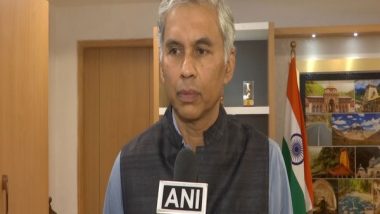New Delhi [India], September 12 (ANI): The toll for the first 20 kilometres will remain free as there has been no change in the National Highway policy, said Ministry of Road, Transport, and Highways (MoRTH) Secretary Anurag Jain on Thursday.
"The toll for 20 kilometres remains free, as it always has been, and there is no change in the National Highway policy. If a vehicle travels beyond 20 kilometres, toll will be charged," he said.
Also Read | Maharashtra Government Releases NITI Aayog Report on Mumbai Metropolitan Region.
The secretary was replying to a query on the notification issued by the Ministry regarding the amendment in the NH Fee rule, 2008. "Mechanical vehicle other than National Permit vehicle who makes use of the same section of National Highway shall be levied a zero- user fee up to twenty kilometres of journey in each direction once in a day under GNSS based user fee collection system," the notification had read.
Jain also announced that the Ministry will implement the Global Navigation Satellite System (GNSS), a new satellite-based road toll collection system, in hybrid mode by the first quarter of the next financial year. "A Request for Proposal (RFP) for the GNSS-based system will be floated before the end of this financial year. The implementation will begin in the first quarter of the next financial year, starting with commercial vehicles. It may take 2-3 years for nationwide implementation," he stated.
Also Read | PM Narendra Modi Announces Passing of Delhi Declaration on Civil Aviation.
The Secretary also responded to a question about whether there is a need to increase speed limits given the improved road and highway infrastructure. "First, we need to establish systems for disciplined driving before considering any changes to speed limits," he said.
Responding to a question that if there is any plan to convert diesel buses into electric vehicles instead of scrapping them, Jain said, "I have raised this question with the Society of Indian Automobile Manufacturers (SIAM). I asked them to propose policy options to the government. Technically, if vehicles are causing pollution, they should be phased out. However, the government considers all stakeholders. We are exploring options to retrofit older vehicles with EV kits. If a bus is 7-8 years old and fits EV kits, which could extend their operational life then we are looking at this policy option very positively."
He also mentioned that if older buses are retrofitted with EV kits and maintenance issues are addressed properly, then such a decision could be supported. (ANI)
(This is an unedited and auto-generated story from Syndicated News feed, LatestLY Staff may not have modified or edited the content body)













 Quickly
Quickly
















